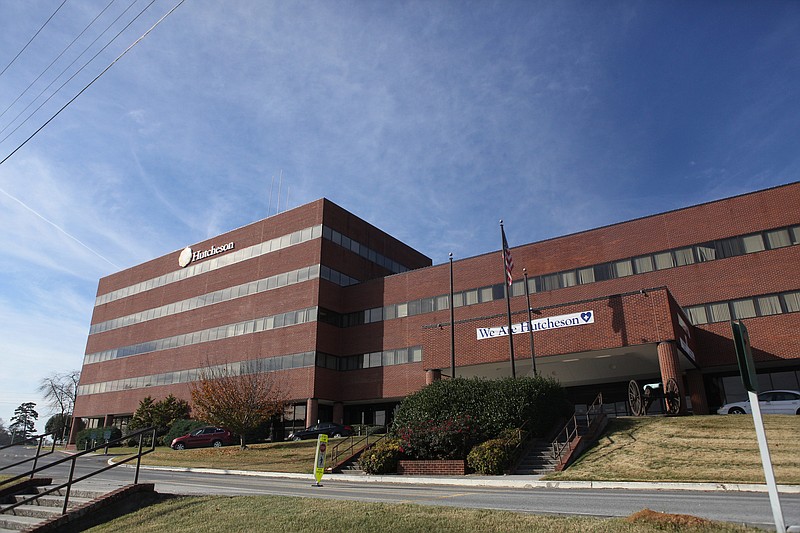LaFAYETTE, Ga. - About two months from the due date for his first budget, Walker County's commissioner has a new, $8.7 million weight on his shoulders.
The U.S. Court of Appeals ruled Thursday that the county still has to pay Erlanger Health System its half of a guaranteed loan that dates back to 2011. Commissioner Shannon Whitfield, who took office Jan. 1, is not sure how he will handle the problem. He expects an audit released next week to show debt in excess of $70 million, including this most recent blow.
"It's a catastrophic event that I've inherited," he said. "It's just one more thing that's been mismanaged under the prior administration."
Does this mean a property tax increase?
"It's definitely something that we'll have to consider," he said. "Erlanger very well could push us into having to raise taxes over their continuing to press the issue."
Whitfield has met with Erlanger CEO Kevin Spiegel twice this year: Once in LaFayette in February and once in Chattanooga three weeks ago. He said both conversations were productive, though he doesn't know whether a settlement between the two sides is in the works.
A spokeswoman for the hospital told the Times Free Press on Thursday, "We've had general discussions regarding resolution, but nothing specific."
The case dates back to April 2011, when Erlanger took over management of Hutcheson Medical Center. At the time, Hutcheson was on the brink of collapsing, losing $1 million a month. With Erlanger executives handling the Fort Oglethorpe hospital's day-to-day operations, they also agreed to loan Hutcheson's governing body $20 million to stay afloat.
As insurance, the boards for Erlanger and Hutcheson reached an agreement. If Hutcheson didn't have the funds to pay back the loan, it would assign responsibility to Walker and Catoosa counties. The local governments would each pay off half the loan.
In turn, the commissioners for the counties signed an agreement with Hutcheson's board, promising to pay the money if requested.
The agreement between the two hospitals lasted until August 2013, when Hutcheson's board kicked out Erlanger's management team. Some board members were convinced Erlanger's leaders were trying to siphon patients from North Georgia to their main campus in downtown Chattanooga - though Hutcheson's internal figures showed the hospital losing less money under Erlanger's guidance.
In November 2014, Hutcheson sought Chapter 11 bankruptcy protection. ApolloMD bought the hospital 13 months later for $4.2 million, and some of the money went to Erlanger. In turn, Hutcheson's debt to Erlanger dropped, with the counties now on the hook for $8.7 million.
In June 2016, Catoosa County's commissioners settled with Erlanger for $6.2 million. But Walker County's debt has been pending.
Erlanger sued Walker County in December 2015, and U.S. District Court Judge Harold Murphy granted the hospital's motion for summary judgment in August. Walker County, represented by attorney Stuart James, appealed the ruling.
First, he argued Commissioner Bebe Heiskell's promise to pay back the money to Erlanger held no weight because she did so in an intergovernmental agreement. According to the state constitution, all parties in such an arrangement have to be Georgia government bodies.
James argued the contract in and of itself was void if Erlanger benefits from it. Erlanger, after all, is not a government body in Georgia.
While the Court of Appeals justices agreed with the beginning steps of that logic Thursday, they ruled the contract is still valid. Erlanger isn't actually a party in that contract. Erlanger just benefits from the contract because of a separate contract, which the hospital's board signed with Hutcheson's board.
James made a second argument. He said a Georgia county cannot be sued because of the sovereign immunity clause in the state's constitution.
But on Thursday, the justices ruled that sovereign immunity does not apply when a county commissioner signs a contract.
After learning about the ruling, Whitfield said he's not sure what his next move is. James and other lawyers consulting him did not expect the verdict to come down this summer. He does not know if it would be smart to try to appeal the ruling further.
He said the county can't pay the $8.7 million all at once. The government's entire budget last year was $23 million. And over the last three years, the county has brought in an average of $11.5 million from property taxes.
At the same time, he doesn't think a bank could front the payment either.
"I would be surprised if we could even borrow the money," he said. "There would be no way to secure that debt. The county is so highly leveraged already."
Contact staff writer Tyler Jett at 423-757-6476 or tjett@timesfreepress.com. Follow him on Twitter @LetsJett.

